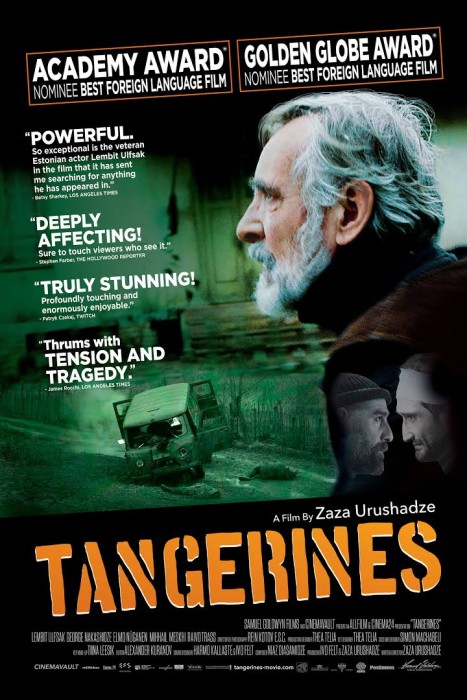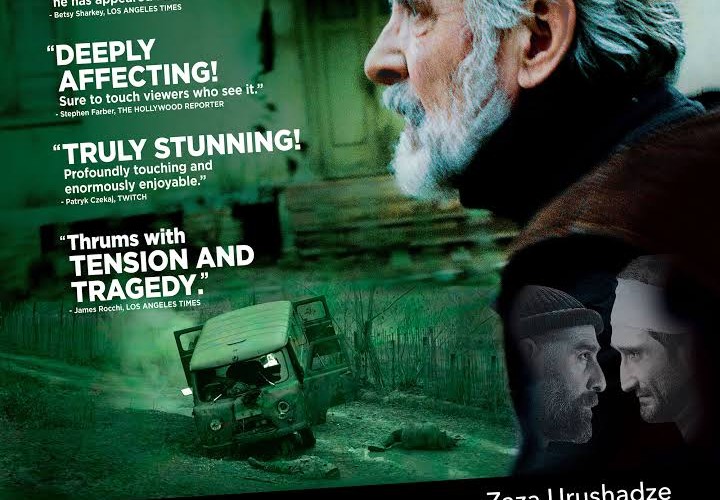
Keeping the numerous ethnic, religious and geopolitical conflicts in the world straight is not an easy task. Who is fighting whom, which outside forces are supporting each side and why can leave your head spinning (and lends ever more credence to the old adage that “Politics makes strange bedfellows”). A small and very wonderful film from Estonia focuses on one of the world’s trouble spots and, were it not for a 2014 Academy Award nomination for Best Foreign-Language Film, “Tangerines” would have remained completely under the radar. While the other four Oscar nominees opened months ago, “Tangerines,” an Estonian-Georgian co-production written and directed by Estonian filmmaker Zaza Urushadze, is just now receiving its Los Angeles release.
“Tangerines” is set in the Caucasus, a vast and mountainous region where Asia and Europe essentially meet. The landmass, located between the Black and Caspian Seas, includes Chechnya, Georgia, Armenia, Azerbaijan, a chunk of Russia and an assortment of small territories seeking independence from these various nations and republics — efforts that intensified after the dissolution of the Soviet Union in 1989. One such breakaway hopeful was Abkhazia, which in 1992 started a civil war against Georgia, which had long considered Abkhazia part of its territory. Russia, which had (and still has) its own axe to grind with Georgia, sent Russian troops to aid the Abkhazians.
Abkhazia was home to thousands of Estonians, who had immigrated there in the late 19th Century. Ivo (the magnificent Estonian actor Lembit Ulfsak) is one of them. A carpenter by trade, he refused to leave his small, rural farmhouse, even as surrounding neighbors fled the fighting. He stays partly because he is stubborn and considers Abkhazia his home, and partly to help his neighbor Margus (Elmo Nuganen) harvest his tangerine crop (hence the film’s title). The fruit must be picked or it will wither and die on the trees.
When a firefight erupts down the road, only two soldiers survive, both badly injured: Ahmed (Giorgi Nakhashidze), a Chechen mercenary paid by Moscow to fight on the Abkhazian side, and Niko (Mikhail Meskhi), a young Georgian. Ivo takes them both in and nurses them back to health, despite constant threats from both men –- especially Ahmed –- that they will kill each other as soon as each is well enough to get out of bed.
This absurdist, but very serious, situation recalls the brilliant black comedy “No Man’s Land,” which was set during the Bosnian-Serbian war and which won the Foreign-Language Film Oscar in 2002. “Tangerines” is not a comedy, although it contains a great deal of very dry humor. Like “No Man’s Land” it is an anti-war film set in the middle of a muddled conflict in which reason plays little, if any, role. The cast is marvelous, the direction subtle (most of the action takes place in and around Ivo’s small house, yet it feels neither static nor stagey), and the tone is a marvelous intermingling of humor and melancholy, sadness and hope. Like the best films about historical/political conflicts, “Tangerines” focuses on a specific war, but the themes, lessons and emotions it taps into are universal.
